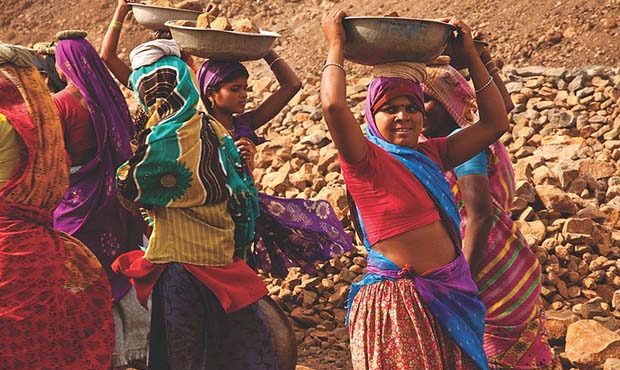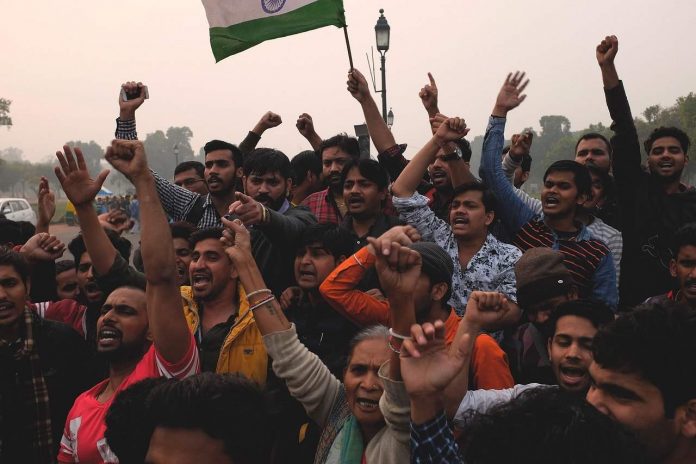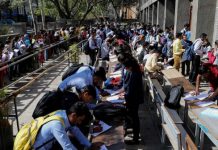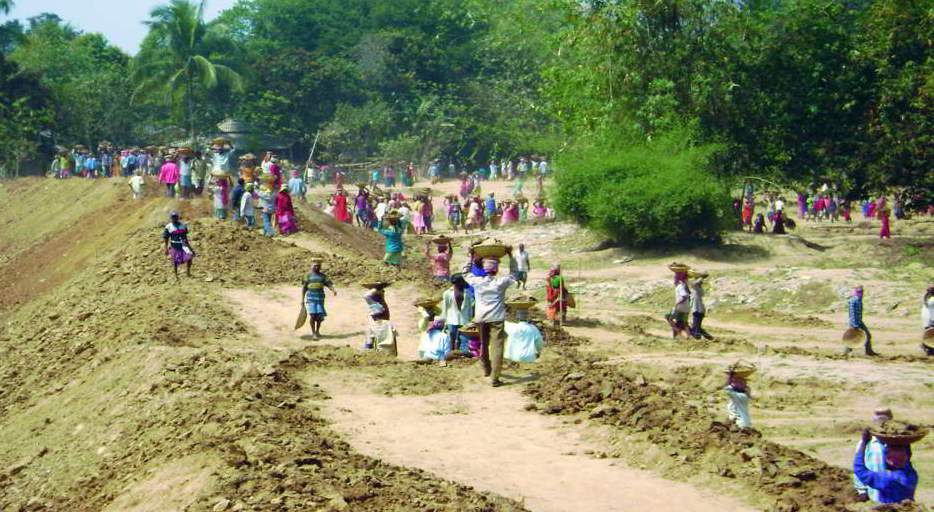The lockdown put in place to curb the spread of coronavirus has had an appalling impact on employment all over the world. In India, its impact has been felt across all sections of society while the most severely affected remain the population of migrant workers who faced massive job and livelihood losses. Forced to move back to their native villages, these landless men and women entered into government employment contracts of 100 days work under the MGNRGES (Mahatma Gandhi Rural Employment Guarantee Scheme). As unemployment numbers heightened so did the number of people enrolled in the scheme, leading to an impending deficit in the sanctioned funding allotted for the financial year 2020-21. Experts have hailed the importance of the scheme as it has created a much needed safety net for millions of daily wage earners. However, they suggest measures be taken to strengthen the scheme by increasing the number of work days to 200 per household and an expansion of funding.

Within this group, another disturbing feature of the lockdown based unemployment has been that workers from socially disadvantaged backgrounds like Dalits, women and adivasis have suffered more job losses. While many of these groups are employed in essential sectors as ASHA workers and sanitation employees and yet they face loss of jobs and wages, it is more obvious that workers from the informal sector of sex work for instance face the brunt of income losses ever so strongly. The government’s failure to take measures to support the transgender population engaged in sex work and other cultural means of earning is not new and it didn’t change even during the pandemic.
Then comes the population of youngsters who have invested in higher education but because recruitment levels are so low during the pandemic, they face the threat of not finding entry into the job market at the stipulated time. This, according to ILO (International Labour Organisation) could push them behind for years to come. Furthermore, in India, nearly 41% of the 13% educated youngsters (graduates) between ages 15 and 29 had lost their jobs in May, according to data by CMIE (Centre for Monitoring the Indian Economy) threatening their careers and hurtling the economy’s decline further. The long term impact explained by these results means that without any accumulation of savings within this generation, the effects would create gaps for the future generations. And with the sizeable population of youth in India, the demography will become a curse for the country. In the absence of any stimulus package towards unemployment benefits, these youngsters are facing a crisis.
In India, the crisis of joblessness has preceded the virus, only to be heightened after the lockdown. The growing inequality under the Modi regime as a result of faulty policies favouring the rich for the cause of development meant increasing unemployment and poverty on one end and extreme wealth accumulation on the other of the country’s population. The massive scale joblessness has reached post Covid-19 lockdown (around 15 crore jobless people) has taken the form of a humanitarian disaster as it is ballooning up a fatal threat to livelihoods.
It is being strongly recommended that to minimise the adverse effects on economy and livelihoods, nation-states enhance their social welfare character by increasing emphasis on- in the Indian instance- public works, job creation, skill development, universal basic income, wage subsidies, entrepreneurial credit etc. Nearly 10 lakh government posts of teachers in elementary and secondary education are lying vacant across the country, according to the ministry of state for the HRD. This trend can be seen in various other public sectors of employment. It is imperative these vacancies be rolled out now.
A combination of temporary and long term policies is required to regulate the crisis. Short term policies towards supporting MSMEs and cash transfers have been recommended ever since the lockdown was imposed. But the centre’s Covid fiscal package failed to deliver that and instead maintained a loan based emphasis without any real effort to enhance the purchasing power of the people. Among the long term measures needed is the stress on a stronger public health system, universalisation of social security and policies for welfare and rights of migrants. We are yet to see how that pans out.














